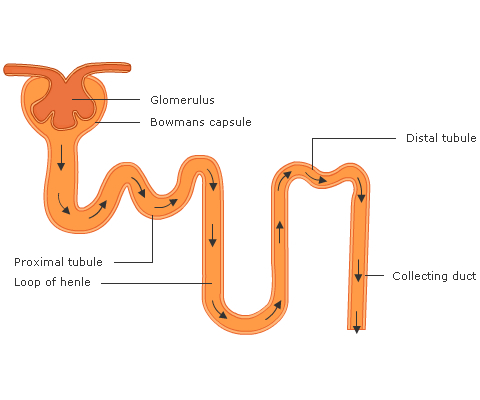Is this problematic for children having surgery?
Hyperglycaemia can induce an osmotic diuresis and consequently dehydration and electrolyte disturbances.
Animal studies have demonstrated that hyperglycaemia will increase the risk of hypoxic-ischaemic brain or spinal cord damage.
In infants subjected to profound hypothermic circulatory arrest for cardiac surgery, high pre-arrest blood glucose levels are associated with postoperative neurological deficits.
The image shows the renal nephron and glucose molecules inside the lumen pulling in water from outside so that it is excreted via the kidney.

Fig 1 Renal nephron